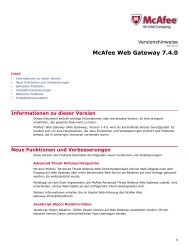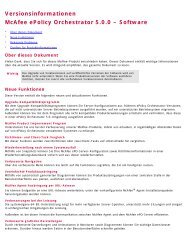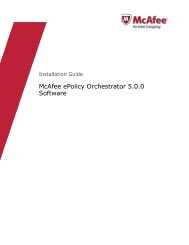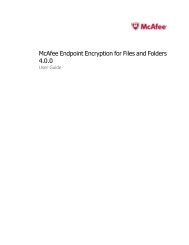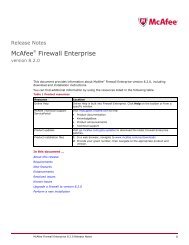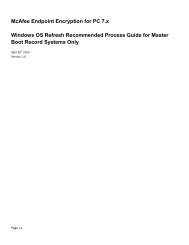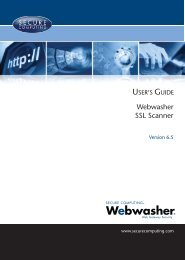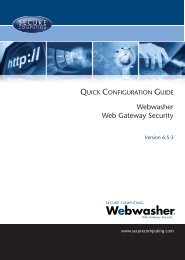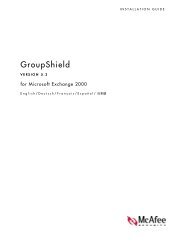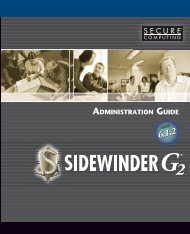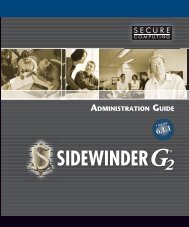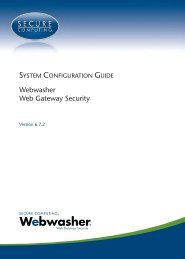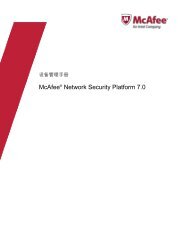Webwasher 6.0.1 Anti-Malware User's Guide - McAfee
Webwasher 6.0.1 Anti-Malware User's Guide - McAfee
Webwasher 6.0.1 Anti-Malware User's Guide - McAfee
You also want an ePaper? Increase the reach of your titles
YUMPU automatically turns print PDFs into web optimized ePapers that Google loves.
— Write access to local files<br />
This also includes locally mounted network shares.<br />
— Access to the network<br />
Content Security<br />
With this operation, code may be classified as potentially malicious regardless<br />
of the transport direction and application-level protocol.<br />
— Dynamic loading of program code<br />
This includes the instantiation of COM servers (as with ActiveX controls).<br />
— Access to other processes<br />
An example of this is usage of Interprocess Communication (IPC) functionality.<br />
Java Analysis Options Window<br />
The Java Analysis Options window opens after a click on the corresponding<br />
link, which is located at the top of this tab.<br />
The window looks like this:<br />
It allows you to specify how Java applets and applications should be inspected.<br />
Java class files that implement neither an applet, nor an application are treated<br />
as applets by default because the policy for applets is more stringent.<br />
“Hybrid” Java class files, e. g. files that implement both applet and application<br />
interfaces, are filtered using both policies.<br />
When scanning a Java Archive (JAR), classifications of the contained Java<br />
class files are accumulated until a decision has been reached about whether<br />
it is an applet or an application. The whole JAR is then classified according to<br />
the chosen policy.<br />
After modifying the settings in this window, click on OK to make the modification<br />
effective.<br />
4–41



